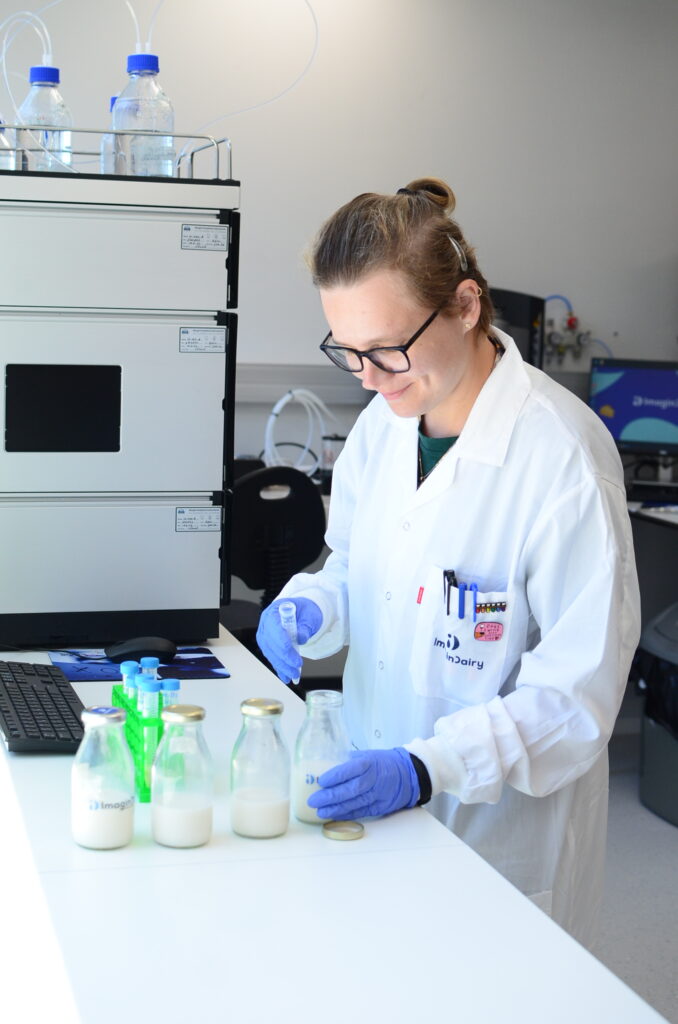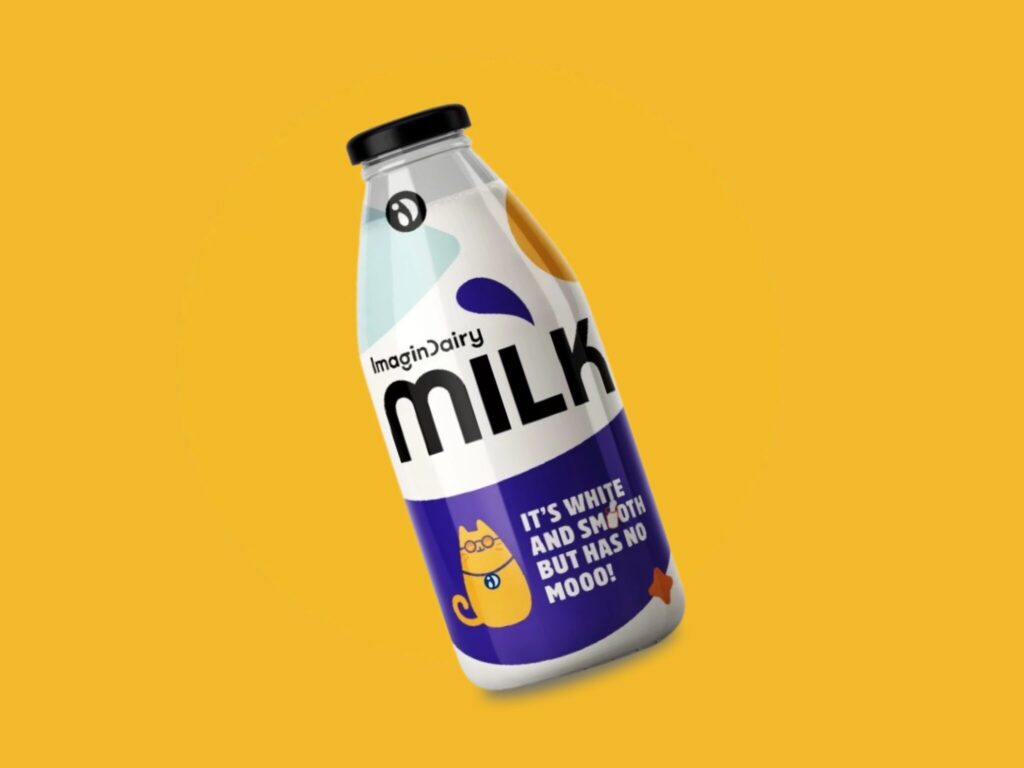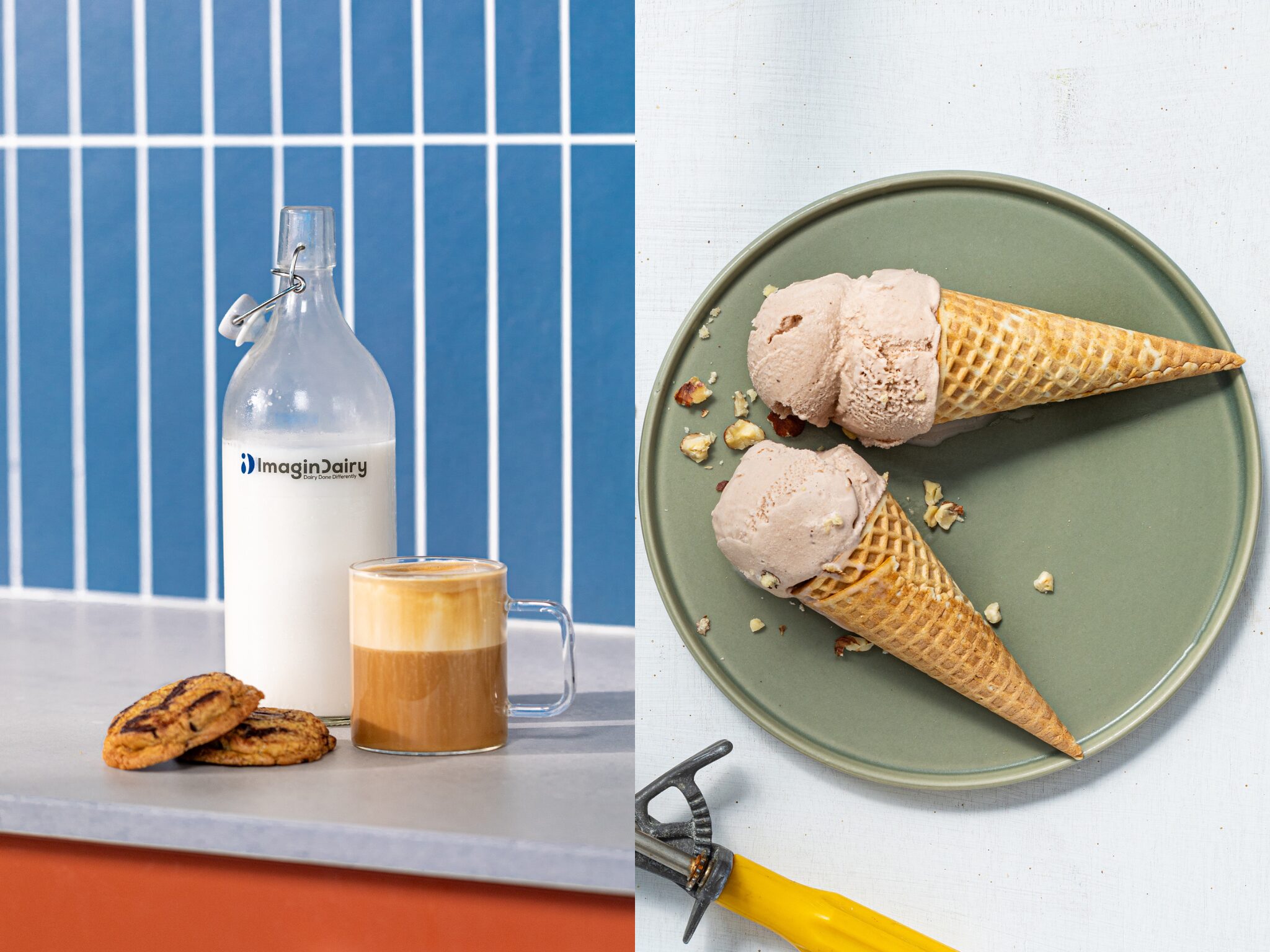Imagindairy Unveils Industrial-Scale Facility to Produce Animal-Free Dairy Proteins at Price Parity
4 Mins Read
Israeli precision fermentation startup Imagindairy has acquired and begun operating industrial-scale production lines for its animal-free dairy proteins.
Two weeks after becoming just the third precision fermentation dairy company to receive a ‘no questions’ approval letter from the FDA, Israeli startup Imagindairy has announced the acquisition of an industrial-scale plant in the Middle East that will allow it to manufacture cost-competitive animal-free dairy products.
The company claims to be the first in the industry to fully own and operate such large-scale production lines, which gives it a 100,000-litre fermentation capacity. Imagindairy plans to triple this volume in the next one to two years and says it is already producing industrial-sized batches at price parity to conventional dairy.
“Having just entered the landscape three years ago, this achievement is a big step forward for us. We’ve overcome industry-wide hurdles that have previously been holding precision fermentation dairy back, including the production capacity bottleneck and ensuring that unit economics make sense across the supply chain,” said Imagindairy co-founder and CEO Eyal Afergan.
Using koji mould to make cow-free whey

Founded in 2020, Imagindairy uses precision fermentation technology to produce dairy proteins, without the cow. It is starting with beta-lactoglobulin, the main whey protein found in bovine milk (accounting for 65% of the total whey content). This is the ingredient for which it received regulatory approval from the FDA in the form of its ‘no questions’ letter two weeks ago, following its self-affirmed Generally Recognized as Safe (GRAS) status in August.
Beta-lactoglobulin is also the whey protein being produced by fellow precision fermentation companies Perfect Day (US) and Remilk (Israel), the only other producers in this space to have received GRAS approval from the FDA (Israeli startup TurtleTree, which is producing lactoferrin, has self-affirmed GRAS status, and plans to obtain the ‘no questions’ letter this year).
Imagindairy’s beta-lactoglobulin is produced via an AI-led microflora-based production method “inspired by nature”, which feeds microorganisms that are 20 times more efficient than cows at converting feed into proteins. The startup employs a microbe called Aspergillus oryzae, the same fungi strain used by German precision fermentation player Formo for its egg alternative. More commonly called koji mould, it’s known as Japan’s “national fungus” and is used in many traditional fermented foods like miso, mirin, shoyu, as well as alcoholic beverages such as shochu and soju.
The Israeli startup is working on other proteins too, including casein (which makes up 80% of the protein content found in dairy) and other whey proteins like alpha-lactalbumin (accounting for about 25% of bovine whey content).
In August, Imagindairy opened a new headquarters near Haifa, Israel. Its latest move from contract manufacturing to its own facility marks a shift in gears for the company, as Afergan explained. “Imagindairy is setting its sights on commercialisation of its animal-free dairy protein,” he told Green Queen. “We can now offer the most efficient manufacturing and end-to-end capabilities, extending through in-market product availability.”
Imagindairy plans to launch products this year

While Imagindairy hasn’t publicly announced any partnerships, Afergan confirmed the startup is currently collaborating with partners on commercial projects. With the new facility, it can help its customers to offer animal-free dairy products at costs on par with their conventional counterparts. “It’s a substantial breakthrough and important step that will allow us to support mass-market adoption, transition to an industrial company, and speed up the development of other milk proteins,” said Afergan.
“Cost parity has always been a main target for Imagindairy, due to the understanding that mass market adoption will not happen without it,” he told Green Queen. “Our dairy prototype formulations, based on our protein, are at parity with traditional dairy products or even at lower prices.” Research funded by Formo last year suggests that at price parity, precision-fermented dairy will capture a third of the overall dairy market. Even with a 25% price premium, it would account for a 22% slice of the pie.
This is crucial considering the impact of the dairy industry on the environment. According to Perfect Day’s life-cycle assessment, its beta-lactoglobulin has 91-97% lower GHG emissions, 29-60% lower energy demands, and 96-99% of water consumption than conventional whey protein. Similarly, an LCA by French player Bon Vivant – also focused on beta-lactoglobulin – showed that milk made from its precision-fermented whey emits 96% less carbon, uses 99% less water, and requires 92% less land.
“While our long-term goal is to work with food manufacturers to bring animal-free dairy products to retail stores, markets and cafes across the globe, we are always exploring opportunities to showcase to consumers the endless possibilities of our dairy protein,” said Afergan. Products made with its protein aren’t yet available for consumers, but they’re expected to be launched in the US later this year.
Afergan added that Imagindairy is pursuing regulatory clearance in other regions too, including Israel (where Remilk is the only company to have obtained the green light). Just earlier today, the country became the first in the world to approve the sale of cell-cultured beef, granting a ‘no questions’ letter to Rehovot-based producer Aleph Farms.
“The quality and safety of our animal-free dairy protein and process has always been paramount, and regulatory approval is a critical step in ensuring that,” said Afergan. “These major milestones will support our mission to be the largest dairy producer without a single cow.”




